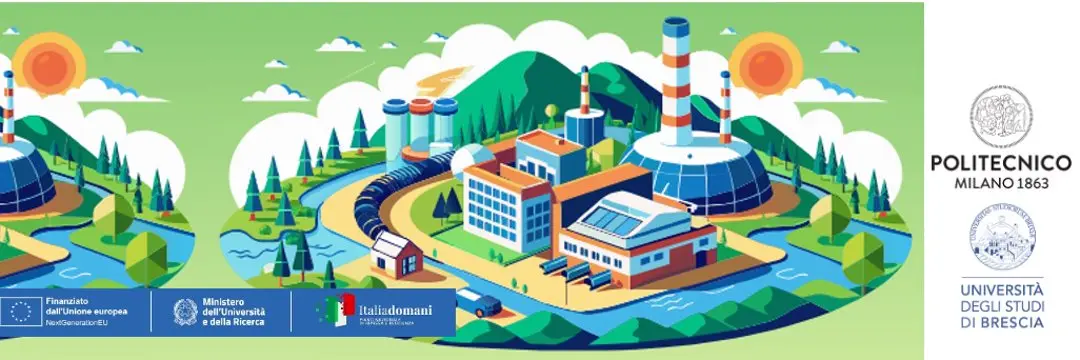NE2AP - Toward net-zero infrastructure: advancing the environmental and economic appraisal of power plants
Website's ProjectNE2AP - Toward net-zero infrastructure: advancing the environmental and economic appraisal of power plants
Website's Project
The international political and social debates focus on climate change and infrastructure development. At COP26, participants pledged to limit climate change as a crucial part of their activity. $26 trillion spent on energy infrastructure by 2040 (GiHub, 2022). Investments in energy infrastructure, especially power plants, are crucial for two reasons:
they support sustainability transition toward net-zero, particularly considering the shift toward electricity in (previously) fossil-fuel dominated sectors (e.g. chemicals production, cars and buildings heating)
low carbon power plants’ construction (e.g. wind, solar, nuclear) requires, during construction, significantly higher resources than traditional fossil-fuelled ones’ construction (e.g. combined cycle gas plants)
This is especially relevant to Italy, given its high dependency on critical energy (and critical materials), as underlined by the current geopolitical crisis.
For a proper assessment of power plants, their overall life cycle needs to be considered. This research project generates new knowledge and understanding from this standpoint. The project delivers an enhanced Life Cycle Assessment (LCA). LCA models are used to investigate the impact of products or systems on the environment (and human health), supporting decision-makers to select a specific technology/product among alternatives. Current LCA models are suitable for products with a predictable short life cycle (e.g., mobile phones, a supermarket bag), but not for infrastructure, such as power plants, with decades-long life cycles. Current LCA models show four main weaknesses addressed by this project:
risks associated with technology uncertainties are not evaluated in a correct manner
inputs and outputs on different timescales and relative risks are not properly considered
long life cycles provide fewer options (or degrees of freedom) than shorter life cycles
economic models are poorly integrated from the perspectives of both policy-makers and the private sector
This project is designed to overcome the four weaknesses by developing and applying a new enhanced LCA model. The first two weaknesses will be tackled by applying theoretical insights from the Discount Cash Flow (DCF) model and, for weakness three, the Real Options Approach (ROA). These methods were developed to tackle the first three weaknesses in cash flow analyses; therefore, we “theory transfer” the insight to new enhanced LCA. The enhanced LCA model can also be integrated with an economic model to address the fourth weakness. The enhanced LCA model focuses on power plants because of the national and international relevance, timing, and expertise. The enhanced LCA model is developed and implemented in a user-friendly spreadsheet that will be open access. The enhanced LCA is applied to the Italian scenario, and the results are disseminated among policy- and decision-makers.
Selected Publications
- Locatelli G., Paravano A., Neri A., Cagno E., “Towards a net-zero infrastructure: proposal for an enhanced LCA model for power plants”, 9th International Conference on Renewable Energy and Conservation (ICREC 2024), Rome (Italy), November 22-24, 2024
- Paravano A., Locatelli G., Neri A., Cagno E., “Towards a net-zero infrastructure: a CO2-based taxonomy for power plants”, 9th International Conference on Renewable Energy and Conservation (ICREC 2024), Rome (Italy), November 22-24, 2024.